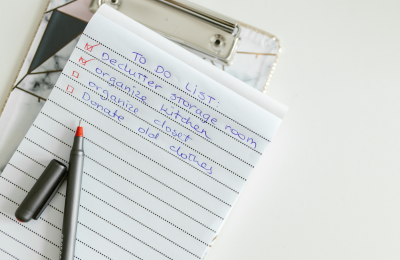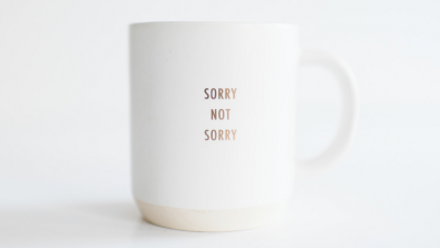The mental health benefits of decluttering and organising
2 minute read
Did you know that clutter can affect your anxiety levels, sleep and ability to focus?
Bursting cupboards and piles of paper stacked around the house may seem harmless enough. However, research shows that disorganisation and clutter have a cumulative effect on the brain and that clutter can cause stress, anxiety and depression.
In 2011, neuroscience researchers found that clearing clutter from the home and work environment resulted in a better ability to focus and process information, as well as increased productivity.
Here are 4 ways that clutter can affect mental health, and how decluttering and organising can help:
1. Help with anxiety
Studies have shown that clutter can increase cognitive overload and produce spikes in cortisol, otherwise known as the ‘stress hormone’. By organising your home, you can create a calm environment, potentially decreasing your anxiety.
2. Improve sleep

Unfortunately, the clutter around us doesn’t go away even when we go to bed. People who sleep in cluttered bedrooms are prone to have sleep problems, including difficulty falling asleep and being disturbed during the night.
3. Learn to focus
Clutter creates a form of visual noise. This is distracting and overwhelming, making it difficult to focus and concentrate. Decluttering can clear your mind and improve focus, allowing you to concentrate on what’s important.
4. Improve your self-esteem

When our home is cluttered, our mood and self-esteem can be low, as we may feel negative about our environment. Decluttering can lift your mood and help you feel proud of your home.
By decluttering and bringing organisation into your home, you’ll notice the stress levels decrease, thereby helping to improve your mental health.
Here are 4 ways to start your decluttering journey:
1. Decide which areas need decluttering

Walk around your home and look at each room. Open cupboards and drawers and look at those hidden areas, such as under the bed, the cupboard under the stairs or the loft. Also, those outside areas such as your garage or garden shed. Which areas need decluttering? Make a list so that you’re clear in your mind.
2. Make time to declutter
Decluttering your home will take time. Make sure that you schedule it in, to help you focus properly and avoid distractions.
3. Take small steps
Don’t feel you have to declutter a whole room or house in one session. Set a timer for just 10 minutes and focus on a small area to begin with, such as a drawer or shelf. Celebrate those small wins and congratulate yourself as you go along. Watch those small wins become big over time.
4. Get help with decluttering
Organising your home is much easier with help. You can find a Professional Organiser using the Find an Organiser tab on APDO's website. Some APDO members specialise in working with neurodivergent individuals, including those with ADHD, Autism, or Hoarding behaviours. You can find our specialists using the specialism search function.
So don’t procrastinate, make today the day that you start your decluttering journey. Good luck!






